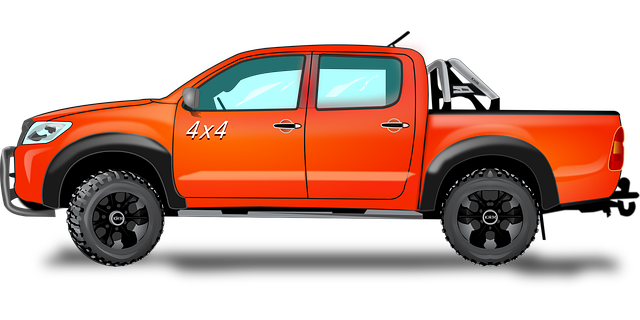RGV Auto Mart offers a range of receiver hitches for enhanced towing and hauling capabilities, catering to various vehicle needs with different class ratings (I-IV). Customers can select from lightweight options for smaller vehicles to heavy-duty hitches for larger trailers. Installation is guided by a step-by-step process ensuring stability and security. Regular maintenance, adherence to weight limits, and professional inspections are recommended for optimal performance and safety while towing, making RGV Auto Mart your trusted source for reliable towing solutions.
“At RGV Auto Mart, we understand that selecting the right receiver hitch is crucial for safe and efficient towing. This comprehensive guide delves into the essentials of receiver hitches, their vital role in vehicle towing, and the various types available. From class-specific designs to installation tutorials tailored for our customers, we cover all you need to know. Discover the benefits and considerations when choosing a receiver hitch, along with maintenance tips, ensuring longevity and peace of mind on the road.”
- Understanding Receiver Hitches: A Basic Overview
- The Role of Receiver Hitches in Vehicle Towing
- Types of Receiver Hitches: Class and Design Variations
- Installation and Setup: Step-by-Step Guide for RGV Auto Mart Customers
- Benefits and Considerations for Choosing the Right Receiver Hitch
- Maintenance and Safety Tips for Longevity with Your Receiver Hitch
Understanding Receiver Hitches: A Basic Overview

Receiver hitches are a fundamental component in towing and hauling systems, often found on vehicles like trucks and SUVs. At the RGV Auto Mart, we frequently encounter customers seeking to enhance their vehicle’s capabilities with reliable receiver hitches. These hitches serve as an interface between the vehicle and the trailer or load being hauled, allowing for secure attachment.
A receiver hitch consists of a metal tube that is permanently mounted to the vehicle’s chassis, typically in the rear. This tube, known as the receiver, has a slot that accommodates a corresponding ball on the trailer, ensuring a firm connection. With various class ratings and sizes available, choosing the right receiver hitch depends on factors like vehicle weight capacity, trailer size, and intended use.
The Role of Receiver Hitches in Vehicle Towing

Receiver hitches play a pivotal role in vehicle towing, offering a secure and versatile attachment point for trailers, RVs, and other towed loads. These hitches are designed to seamlessly integrate with a vehicle’s existing towing system, enhancing its capabilities. At RGV Auto Mart, you can find a wide array of receiver hitches tailored to various vehicle makes and models, ensuring compatibility and optimal performance during towing.
By connecting a trailer or RV to a receiver hitch, drivers gain the confidence to tow heavier loads, expand their travel possibilities, and access unique outdoor experiences. The robust construction of these hitches ensures a stable connection, allowing for safe and efficient towing at various speeds. Whether planning a camping trip or transporting goods, RGV Auto Mart’s selection of receiver hitches provides the necessary equipment to make your travels smoother and more enjoyable.
Types of Receiver Hitches: Class and Design Variations

Receiver hitches are a versatile towing solution, offering a wide range of options for various vehicles and needs. They come in different classes and designs, each catering to specific requirements. RGV Auto Mart highlights some key variations:
Class I hitches are the most basic and lightweight, suitable for smaller vehicles and lighter trailers. These simple setups often feature a single ball mount, allowing for easy attachment of trailers with standard couplers. Class II hitches, on the other hand, are more robust and designed to handle moderate towing loads. They typically have a gooseneck design, providing better stability and control, which is ideal for light-duty trucks and SUVs. For heavier duties, RGV Auto Mart recommends considering Class III or IV hitches, offering increased strength and security. These advanced systems often include additional features like safety chains, ensuring safer towing. Each class has its unique design variations, catering to specific vehicle types, making them a popular choice for those seeking reliable towing solutions.
Installation and Setup: Step-by-Step Guide for RGV Auto Mart Customers

Installation and Setup: Step-by-Step Guide for RGV Auto Mart Customers
To install a receiver hitch at RGV Auto Mart, start by ensuring your vehicle is parked on a level surface. Next, locate the existing backup camera wiring harness near the tailgate or under the vehicle. Disconnect the harness carefully to access the factory interface. Then, retrieve your new receiver hitch kit and identify the components: a hitch, mount bracket, and wiring adapter. Align the hitch with the vehicle’s frame and secure it using the provided hardware. Ensure all bolts are tightened properly for stability.
Once the hitch is in place, attach the mount bracket to the hitch and fasten it securely. Connect the wiring adapter to your existing harness and plug in any additional sensors or lights included in your kit. Double-check all connections for a secure fit. With the setup complete, you can now enjoy the benefits of a receiver hitch for towing or carrying accessories. Remember, RGV Auto Mart offers comprehensive support to ensure a seamless installation process.
Benefits and Considerations for Choosing the Right Receiver Hitch

Choosing the right receiver hitch is a crucial decision for any vehicle owner looking to enhance their towing capabilities, especially when considering the diverse needs of RV owners. The benefits are manifold; a well-selected receiver hitch offers improved stability and safety while towing heavy loads, ensuring your RV remains secure on various terrains. This investment can significantly extend the lifespan of your tow vehicle and RV by reducing wear and tear caused by improper towing setups.
When selecting a receiver hitch, consider factors like vehicle compatibility, weight capacity, and the type of towing you plan to do, as offered by RGV Auto Mart. Different hitches cater to specific requirements, from light-duty models for occasional camping trips to heavy-duty options designed for full-time RV living and challenging outdoor adventures. Ensuring a perfect fit and understanding your towing needs will guarantee optimal performance and peace of mind on the road.
Maintenance and Safety Tips for Longevity with Your Receiver Hitch

To ensure your receiver hitch lasts for years to come, regular maintenance is key. Start by inspecting the hitch and its components for any signs of wear or damage. Check the bolts, pins, and other hardware for tightness, as loose pieces can lead to unsafe conditions while towing. Regular cleaning is also essential; use a suitable degreaser to remove grime built up over time. This simple step prevents corrosion and keeps your hitch in top condition.
When it comes to safety, always follow proper installation guidelines provided by the manufacturer. Ensure the hitch is secure and properly aligned with your vehicle’s tow points. Regularly test the locking mechanism to guarantee its functionality. Moreover, be mindful of the weight capacity; never tow beyond what your hitch and vehicle are designed for. For peace of mind, consider periodic professional inspections, especially before long-distance towing trips. At RGV Auto Mart, we recommend these practices to ensure a safe and reliable towing experience.



